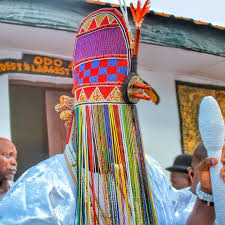By Sola Shittu
Amuda Olorunosebi was the Ashipa of Oyo. He was murdered on 26th of November 1992 while on the way to his farm in Oyo.
Olorunosebi was a member of the Oyomesi also known as the King Makers; the seven principal councilors of Oyo empire.
They constituted the electoral council and possessed legislative powers, similar to today’s United States Congress. The Bashorun, Agbaakin, Samu, Alapini, Laguna, Akiniku and Ashipa are the seven members of this council.
They represented the voice of the people and had the chief responsibility of protecting the interests of the empire. The Alaafin was required to take counsel with them whenever any important matter affecting the kingdom occurs. When Chief Amuda Olorunkosebi was alive, he was a member of Oyo Mesi in Oyo and held the title, Ashipa of Oyo.
He was a very uncompromising personality and never hide his feelings on any issue as one of the advisers to the Alaafin of Oyo, Oba Lamidi Adeyemi III.
In that same Oyo, we also have another chieftaincy title holder, the Abobaku.
The term “Abobaku” literally means one who dies with a king. True to its meaning, anyone who occupied this position would be buried alongside an incumbent king upon his demise.
It is believed that the title was a way of strengthening loyalty and preventing betrayal that could lead to the King’s untimely death since whoever occupied the position was sure to protect the King as much as he could, to avoid his own death as well.
Abobaku title was a death trap, as the holder of such title had their life depending on the death or survival of the incumbent King. But the position was much contested, just like other exalting chiefly titles in the kingdom. And this was because of the benefits attached to the title.
The Abobaku is believed to be close to the King with rights to enjoy from the royal largess. He may even have rights nearly equaled to that of the King. Depending on the cultural practices of the kingdom in question.
This is so because it is believed that since he is to die with the King, he ought to enjoy his living days to the fullest. That probably explains why the position remained attractive and was sometimes contested even though it was a death trap.
Today in Nigeria like the old Oyo empire our politics is dominated by the “Afobaje” and the “Abobakus”.
The late Lamidi Adedibu, the Alaafin Molete and late Olusola Saraki aka Baba Oloye are prominent modern time Afobajes or what we also called the godfathers. Their reigns in their different political climes produced top political office holders but not without the attendant controversies usually born out of such sometimes primitive/Hobbesian approach to politics.
The Afobajes are rare specie and very few in number like the seven Oyomesi. They sometimes come once in a generation unlike the Abobakus who are numerous in number.
The Abobakus of our modern politics are the political bulldogs unleashed by the Afobajes on their supposed opponents or critics. It does not take much to be an Abobaku, and because of the larges attached to the role, many hungry political foot soldiers jumped into this office even without appointment letter.
The job is made easier today with the advent of social media. The ability of an Abobaku to south “Baba rere baba ke” or “rankadede” of a politician can even earn them the political office of Special Adviser, SA praise singer. It is as bad as that in our country. The worse part of these generation of Abobakus are the educated or so called elites class who deployed their writing and intellectual skills to function as Abobaku to a politician.
Their number is growing by day as we move closer to 2023. Another set of Abobakus are in the churches and mosques. They are similar in nature and practice with the street urchin and intellectual Abobakus. The only difference is that they use the pulpits to brainwash and hypnotize their ignorant parishioners for the Afobaje.
Now in this season, the market is saturated but the drama remains the same so much motion without movement. So much of words without action and so much of lamentation without solution.
May God help my country.
Sola Shittu is a change advocate, activist, publicist, entrepreneur, strategist and media consultant.
He writes from Abuja


